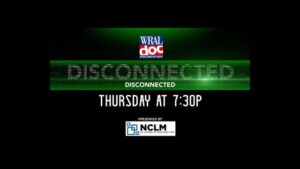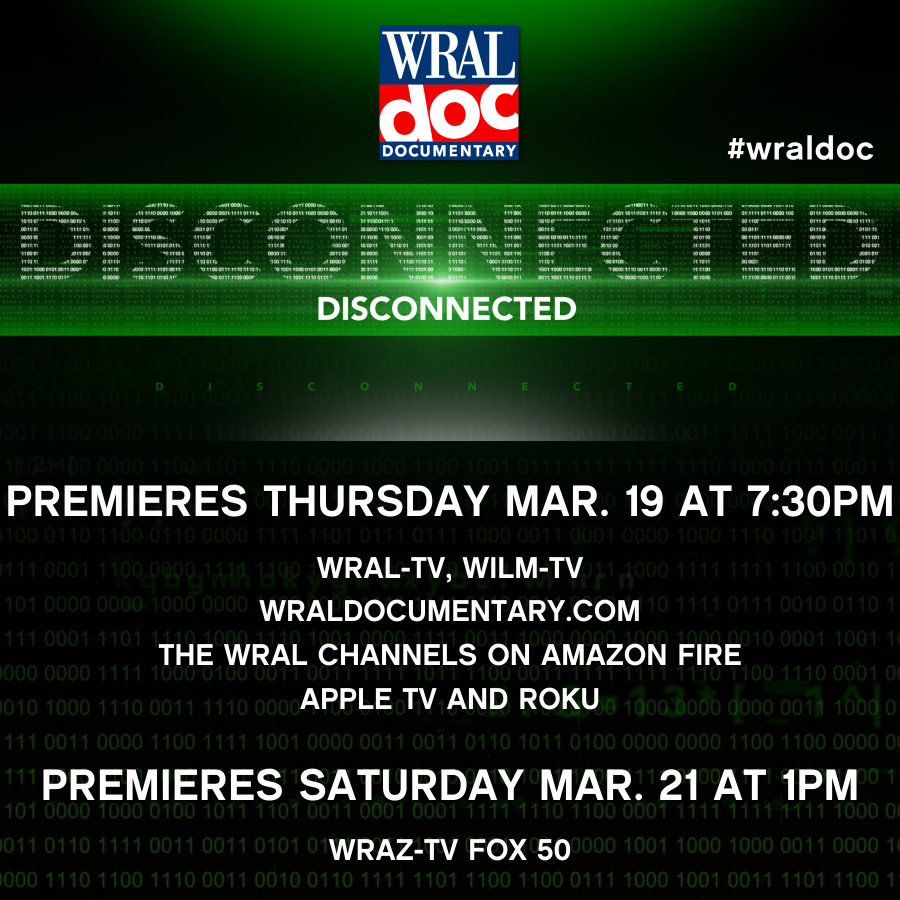New WRAL documentary examines disparity in high-speed Internet access between urban areas and some rural areas
 Access to a high-speed Internet connection affects the ability to do business, get an education, and get quality health care. While most people living in the urban areas of North Carolina have broadband service, many rural areas still do not. The new WRAL Documentary, “Disconnected,” takes a closer look at this disparity. The documentary, narrated by WRAL News anchor/reporter Monica Laliberte, premieres on TV, web and streaming platforms Thursday, March 19 at 7:30 p.m.
Access to a high-speed Internet connection affects the ability to do business, get an education, and get quality health care. While most people living in the urban areas of North Carolina have broadband service, many rural areas still do not. The new WRAL Documentary, “Disconnected,” takes a closer look at this disparity. The documentary, narrated by WRAL News anchor/reporter Monica Laliberte, premieres on TV, web and streaming platforms Thursday, March 19 at 7:30 p.m.
Without high-speed Internet, some communities are unable to attract new business, and even lose businesses that relocate to get broadband access. Some public school students who don’t have access at home rely on their parents to drive them to a library or a fast-food restaurant to access a Wi-Fi connection to do homework. Patients living in rural areas sometimes drive long distances to get to a medical facility when access to telemedicine through a broadband connection at home would serve their needs.
The WRAL Documentary, “Disconnected” examines the reasons behind this digital divide, the challenges it creates for so many people living in rural areas and what can be done to fill the gap and bring high-speed Internet access to everyone in our state.
This documentary is presented by North Carolina League of Municipalities.
When and How to Watch:
Broadcast
- Television premiere on WRAL-TV/Raleigh and WILM-TV/Wilmington: Thursday, March 19 at 7:30 p.m.
- Rebroadcast on FOX 50 (WRAZ): Saturday, March 21 at 1 p.m.
Web
Streaming
After the documentary airs on WRAL-TV, watch it on the WRAL streaming channel for Roku, Amazon Fire TV, AppleTV, and Android TV. Search WRAL on your streaming device to add the channel.
Social Media
Follow Disconnected on social media using #wraldoc.
WRAL Documentary is one of the only dedicated documentary units in local TV. Its mission is to provide in-depth coverage of topics and issues relevant to North Carolinians.
